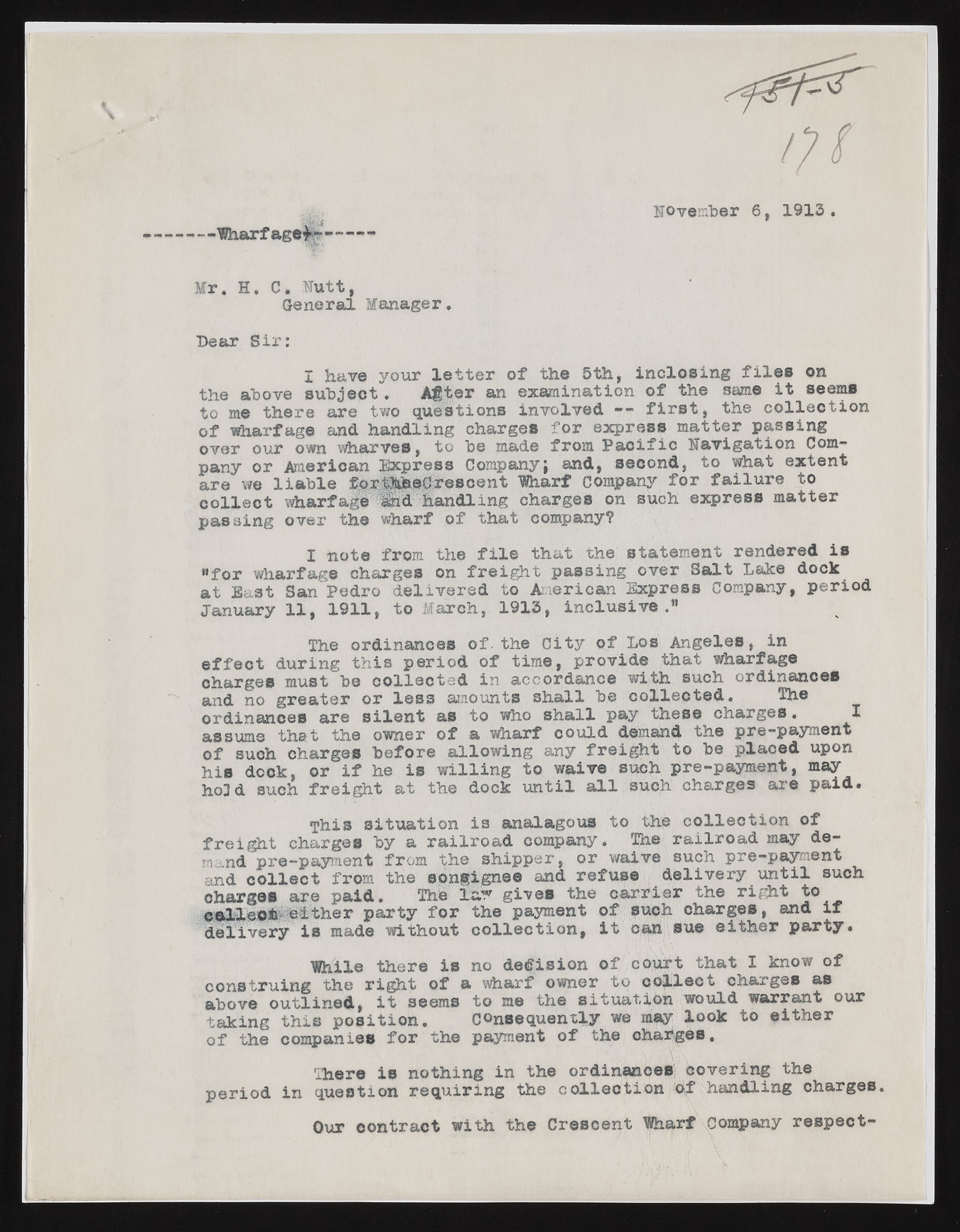Copyright & Fair-use Agreement
UNLV Special Collections provides copies of materials to facilitate private study, scholarship, or research. Material not in the public domain may be used according to fair use of copyrighted materials as defined by copyright law. Please cite us.
Please note that UNLV may not own the copyright to these materials and cannot provide permission to publish or distribute materials when UNLV is not the copyright holder. The user is solely responsible for determining the copyright status of materials and obtaining permission to use material from the copyright holder and for determining whether any permissions relating to any other rights are necessary for the intended use, and for obtaining all required permissions beyond that allowed by fair use.
Read more about our reproduction and use policy.
I agree.Information
Digital ID
Permalink
Details
More Info
Rights
Digital Provenance
Publisher
Transcription
1913 . Uharf agelfp-— - - November 6, Mr. H, C. Nutt, General Manager. Dear S ir: X have your le tte r of the 5th, inclosing f ile s on the above su bject. A fter an examination of the same it seems to me there are two questions involved — f i r s t , the collection of wharfage and handling charges fo r express matter passing over our own wharves, to be made from P a c ific Navigation Company or American Express Company; and, second, to what extent are we lia b le foriiteeCfesoent TKharf Company for fa ilu re to collect vdiarfagd S i^ handling charges on such express matter passing over the wharf of that company? I note from the f i l e that the statement rendered is “fo r wharfage charges on freigh t passing over Salt Lake dock at East San Pedro delivered to American Express Company, period January 11, 1911, to March, 1913, in clu sive." The ordinances of.the City of Los Angeles, in effect during this period of time, provide that wharfage charges must be collected in accordance with such ordinances and no greater or less amounts sh all be collected. The ordinances are silen t as to who sh all pay these charges• I assume that the owner o f a wharf could demand the pre-payment of such charges before allowing any freigh t to be placed upon his dock, or i f he is w illin g to waive stich pre-payment, may ho3d such freigh t at the dock un til a l l such charges are paid. This situation is analagous to the collection of freigh t charges by a ra ilro ad company. The railroad may demand pre-payment from the shipper, or waive such pre-payment and collect from the consignee and refuse delivery un til such charges are paid. The law gives the carrier the right to ©alle<Mt^tther party fo r the payment o f such charges, and i f delivery is made without collection, i t oan sue either party. Ih ile there is no decision of ca;urt that X know of construing the right of a 'wharf owner to collect charges as above outlined, i t seems to me the situation would warrant our taking this position. consequently we may look to either of the companies fo r the payment of the charges. There is nothing in the ordinances covering the period in question requiring the collection df handling charges. Our contract with the Crescent tftiarf Company respect-

